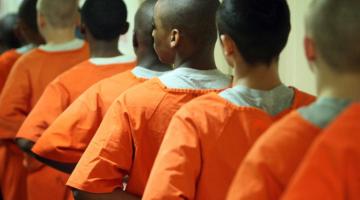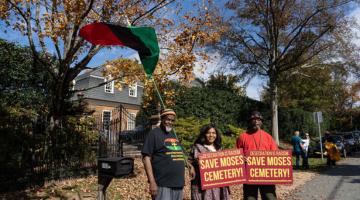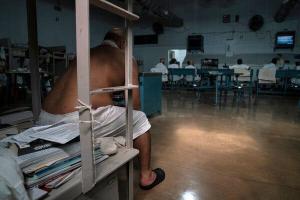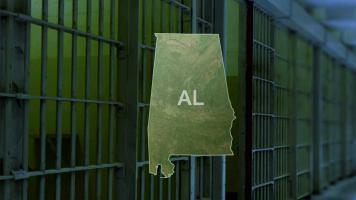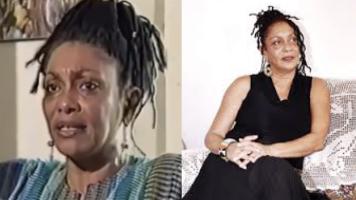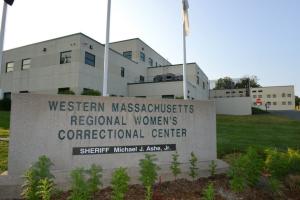Gov. Wes Moore speaks at press conference Jan. 31, 2024 unveiling a juvenile justice bill. (Matt Bush/WYPR)
Despite the messaging from politicians, the new Maryland "Juvenile Justice" bill is another attack on African (Black) youth and, by extension, the whole of the African masses.
Originally published in Black Alliance for Peace.
The Black Alliance For Peace Baltimore Citywide Alliance and The Ujima People's Progress Party of Maryland strongly condemns Maryland House of Delegates for advancing House Bill 814. This legislation revises consequences for children charged with crimes. Both House and Senate bills will broaden juvenile system oversight and expand the crimes for which young offenders aged 10 to 12 can be charged.
The final amendments to the legislation retreated from its initial proposal announced in January, which would have led to more children being drawn into the juvenile system. However, despite adjustments, the measures in the bill remain punitive and harmful. By introducing more and younger children into the criminal legal system, the legislation continues the hyper-criminalization of African (Black) youth which does not effectively improve public safety.
“The bill unfairly targets 10- to 12-year-olds without evidence of their significant contribution to crime. This will ultimately hurt African (Black) children, subjecting them to harsh consequences without addressing any of the underlying issues,” says Sheena Oliver, of Ujima People’s Progress Party, “It would also allow the same minors to be questioned without a parent or legal counsel being present.”
Nationally, the overrepresentation of African (Black) youth in the juvenile justice system is a glaring issue, with higher rates of arrest, detention, and incarceration compared to their white counterparts. Statistics reveal that despite comprising only 15% of all youth in the United States, African (Black) youth make up 42% of those in placement, highlighting the stark racial imbalance within the system.
This disparity is heightened by crime bills like this one, which will expand the spectrum of offenses for which young offenders can be charged. Furthermore it will increase prosecutorial power, and mandate harsher penalties, further contributing to the disproportionate involvement of African (Black) youth in the criminal justice system.
Maryland & Youth Criminalization
As the Baltimore Banner notes, despite substantial expenditures on juvenile incarceration, averaging $414,929 per child annually in Maryland, research suggests that incarceration has not effectively reduced youth crime. Instead, the state has increasingly adopted a rehabilitative approach, leading to decreased youth incarceration rates and a corresponding drop in criminal complaints against youth by 61% over the past two decades. Moreover, community-based support services have emerged as significantly cheaper and more effective alternatives to juvenile incarceration.
In Baltimore City, State Prosecutor Ivan Bates' advocacy for punitive measures aligns with his commitment to cracking down on nonviolent, low-level offenses, reflecting a punitive approach to addressing crime. Bates alleged that the Baltimore City state’s attorney’s office has seen a 99% increase in juvenile charges. Accounts from the head prosecutor cannot be accepted as fact, but serve as more than enough to justify his attempts to reverse many of the reforms made by Maryland State Senator Jill Carter. Bates repeatedly used the word “accountability" in reference to his plans to fast track criminal punishment processes for African youth. These measures include extending probation limits, electronic monitoring devices, and handing down harsher sentences.
While poverty rates are significant in Baltimore City (above the state average), the $330 million proposal for a police and fire department training facility, known as Cop City, should raise questions about the allocation of resources. Rather than addressing the root causes of poverty and crime through sustainable programs, the disproportionate targeting of youth , especially those from colonized communities like African (Black) youth, will only perpetuate cycles of incarceration.
“This proposed legislation to hyper criminalize youth following a proposal to build Cop City will only exacerbate these issues by prioritizing punitive measures over preventive and rehabilitative approaches,” says Black Alliance For Peace Baltimore Citywide Alliance member, Jameela Alexander
Prince George’s County State’s Attorney Aisha Braveboy, echoes the sentiments of Bates. The two have worked together implicating youth as participants in organized crime. While they claim they are targeting juveniles, whom they suspect are acting under the instruction of adults, focus on youth crime has long been a part of county officials' “crack down on crime”. According to 2023 data, property and violent crime were up 41% for the first half of the year. Property crimes producing rapid carceral response from the state is not surprising. The Prince George’s County Police Department Chief, Malik Aziz, was quoted saying, “We cannot arrest our way out of a crime problem,” as recently as summer 2023. Yet around the clock media coverage surrounding carjackings and what is often characterized as an epidemic of violent crime is being met with a continued push for tougher laws. Prince George’s County, being predominantly African (Black), guarantees this will result in youth being funneled into the justice system as what has long been proven an ineffective solution to the reported rise in crime.
In neighboring Montgomery County, this phenomenon of juvenile criminalization has been targeted towards black youth. In the 2022-2023 school year, Black Montgomery County Public Schools (MCPS) students were nearly five times more likely to receive an out-of-school suspension or expulsion than white MCPS students. This number is more than alarming, as African (Black) students only comprised 14 percent of the total student population in the 2022-2023 school year. The latest publication from the Office of Legislative Oversight in 2023 by Elaine Bonner-Tompkins, Ph.D., Senior Legislative Analyst, titled "Addressing 'Racial' Inequity in the School-to-Prison Pipeline," was released by Montgomery County. In the report Bonner-Tompkins states , “Racial disparities persist, with Black students facing double the likelihood of suspension or referral to juvenile services compared to their enrollment share. These inequities are rooted in differential treatment within schooling and policing systems. The report advocates for structural solutions…”. Montgomery county’s former Superintendent Monifa B. McKnight in 2022 brought Montgomery county police officers back into public school. This was after local organizations struggled and won to get police out of schools for the first time in 19 years.
The Schools and the police in Maryland are bedfellows in the criminalization of the youth. Montgomery county has taken the opportunity during an economic downturn to intensify their recruitment of police officers by offering a $20,000 sign on bonus, and making claims that there is a national shortage of police officers. Montgomery county does not apply these same strategies in recruitment with teachers saying they are overworked in 2021. In 2023 Teachers expressed their frustration about being overworked and the county not being able to hire enough substitute teachers and fill MCPS staffing shortages.
Conclusion
In light of Washington, D.C.'s progression towards passing a crime bill and Maryland's consideration of placing an FBI headquarters in a predominantly African (Black) county, it becomes evident that the current leadership, predominantly comprised of the Black Misleadership Class, is spearheading the enforcement of oppressive measures of occupation. Despite the presence of 'First Black' governors, 'Black' mayors, and 'Black' state attorneys, this has amassed to nothing more than the overt criminalization of African (Black) youth and working-class communities. This trend of existing inequalities that perpetuate systemic injustices can be found in major cities across the country from New York City, to Atlanta to San Francisco, where misleaders in Blackface enact harsher sentences on African (Black) communities.
Those of us who understand what this means bear the most responsibility to speak out against yet another assault on the African (Black) masses. Despite what proponents of this legislation argue, this is absolutely being done with an intentional target on the backs of our vulnerable youth. We have seen where such measures like HB 814 lead: more incarceration and less community based support which is the real answer to crime. This legislation ignores the data which showed crime trending downward, in favor of policy reminiscent of the Reagan presidency. Therefore, the Black Alliance for Peace and Ujima People’s Progress Party urge a rejection of this bill. Anything less would amount to challenging the definition of insanity which is to do the same thing and expect different results. We need different results and such will require different ideas not offered by either the Democratic or Republican parties. Join us to form and implement those ideas for a better future for our youth and community!


